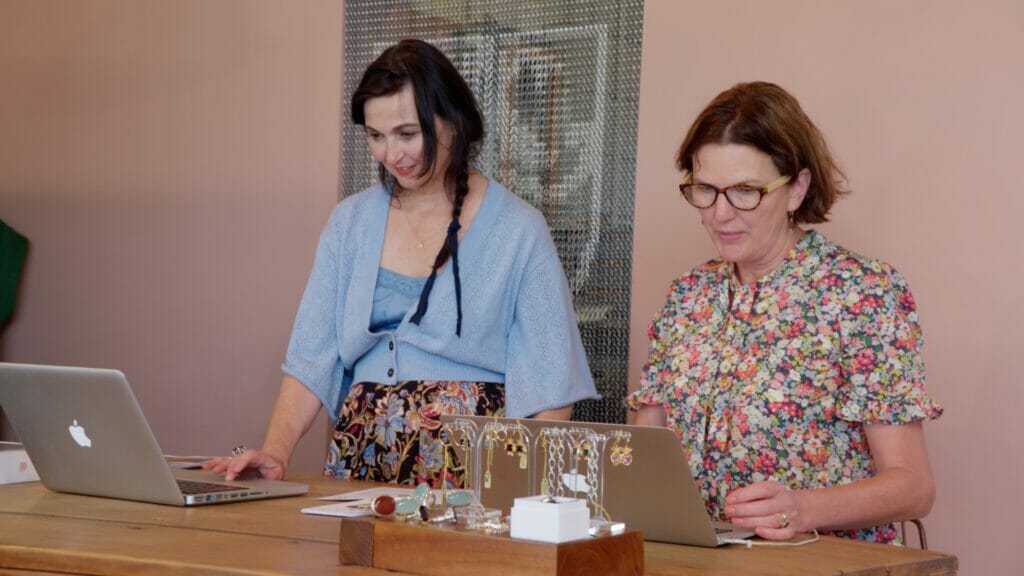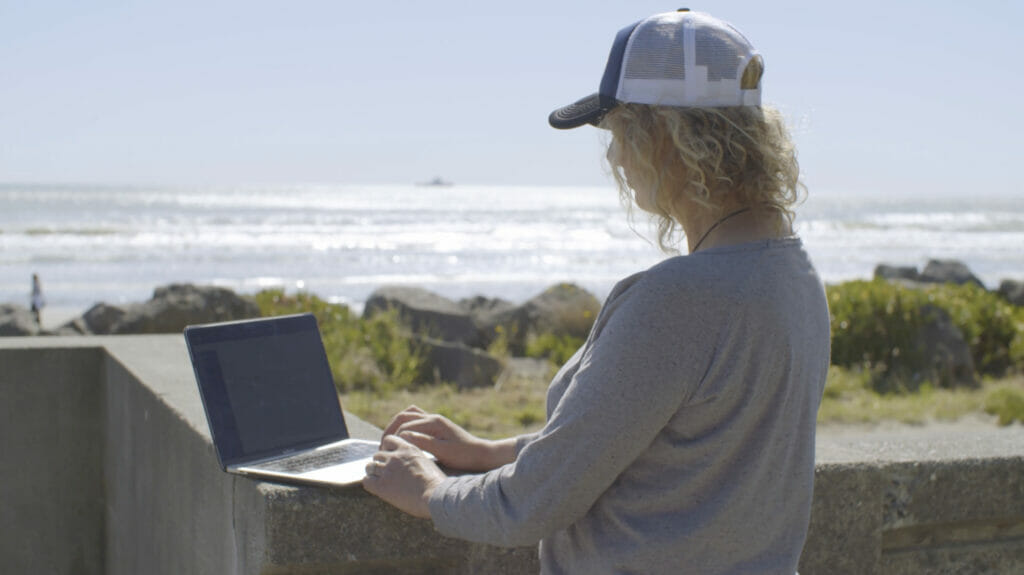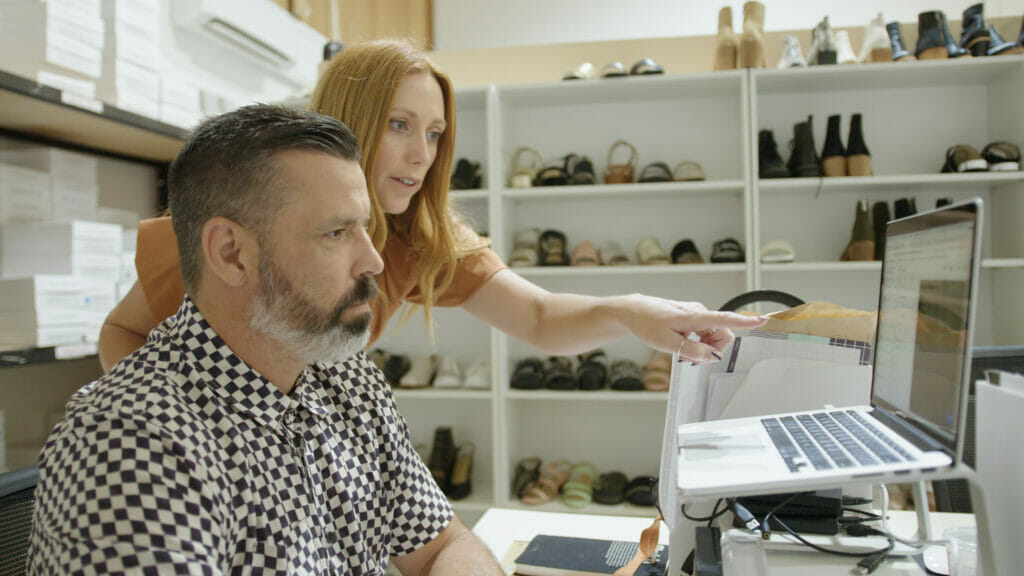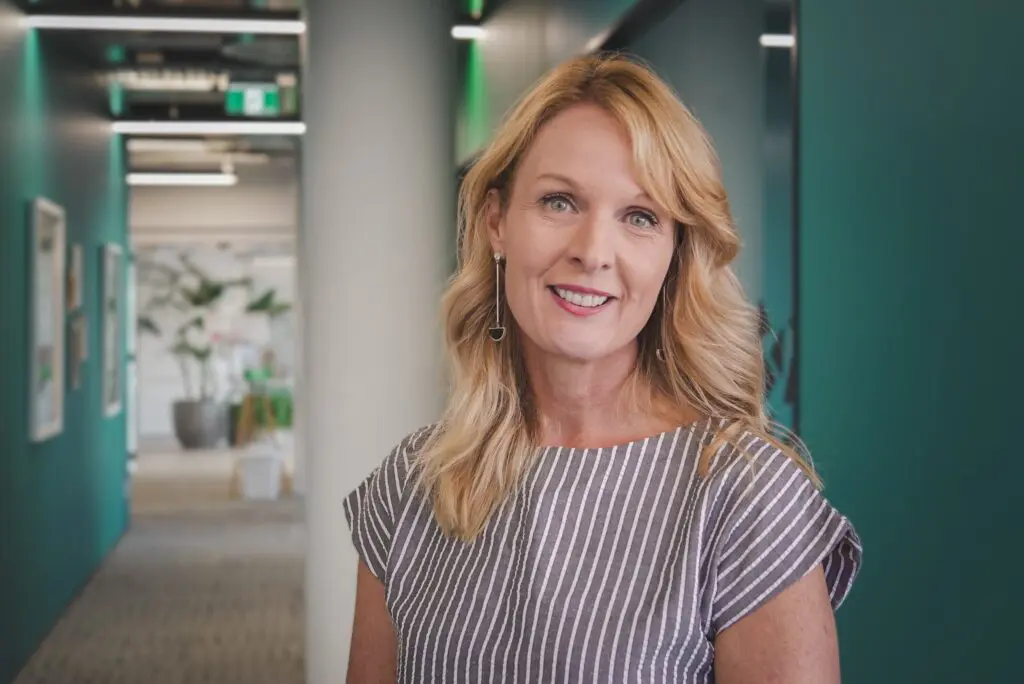Targeting the barriers to digitisation for small businesses
Over the past year, Covid-19 has highlighted gaps in Kiwi small business’ digital capabilities. As a result, the government launched the Digital Boost programme, aiming to provide tangible skills to small businesses so they can adopt digital technology. We spoke to World Class New Zealander Frances Valintine, Founder and CEO of The Mind Lab, about her role in the Digital Boost programme. She discusses the barriers small businesses face in digitising, the opportunities a resurgence in digitisation will offer, and her challenge to New Zealand.
WHAT ROLE IS THE MIND LAB PLAYING WITHIN THE DIGITAL BOOST PROGRAMME?
The Mind Lab has partnered with MBIE to deliver the learning platform that enables businesses to jump on to DigitalBoost.co.nz to learn how to digitise their business. This includes a range of key categories including Websites – eg. design, search engine optimisation, eCommerce, autoresponders, Digital Marketing, Social Media and Digital tools that make business easier. The learning journey is self-paced and video based, which means businesses can start their learning focused on the topics they are interested in and at the level of understanding they already have. These videos are either ‘How-to’ instructional videos or real-life case studies that showcase how other businesses have adopted digital tools and channels to grow their business.

The Mind Lab’s Digital Boost team also hosts daily Q&A sessions with experts from organisations including Xero, Google and Shopify, as well as local providers who provide expertise on everything from developing brands, integrating booking systems or optimising email marketing databases. Twice weekly we host live online ‘Fireside Chats’ with small businesses owners who have adopted new digital processes in response to Covid-19, even in lockdown.
WHAT ARE THE BIGGEST CHALLENGES/BARRIERS FOR SMALL BUSINESSES TO DIGITISE?
There are plenty of common challenges between the thousands of New Zealand businesses using DigitalBoost.co.nz. The first barrier is the very real fear of not understanding what to do first (or second) or being out of their comfort zone. This can include an unfamiliarity of language or concepts. It has to be said that digitalisation has a lot of acronyms which can have a high intimidation factor for someone starting out.
Another common fear is the perceived high cost of ‘going digital’. Many businesses we talked to have previously been burned by spending a lot of money on technology, systems or advice only to see little business growth. We have found it is really important to explain how low cost digital has become and how many of the tools are free or only have a low monthly subscription cost.
We also have a 7-day a week support team who can help demystify any of the areas where a business owner has questions or needs more help. Often this can be around what order they should do things? eg. should they start with a Facebook page and then create a website or vice-versa? What we have discovered is the process of learning is often a family affair. We see plenty of children (of all ages) helping their parents to digitalise.
WHAT EFFECT DID COVID-19 AND SUBSEQUENT LOCKDOWNS HAVE ON SMALL BUSINESSES WILLINGNESS TO DIGITISE?
The rate of digitalisation has been super-charged in a way we could never have predicted. Globally the rate of digitalisation sits between two and five times faster than pre Covid-19 and the advancement of digital tools to support online shopping, banking and collaboration has advanced (according to McKinsey) by five years in a period of eight weeks in 2020. It’s hard to imagine that in December 2019 there were just 10 million daily Zoom users that increased to 300 million users each day by the end of March 2020.

This truly shows how quickly people created workarounds to combat the lockdown effect that made millions of businesses move fully online almost overnight. In Aotearoa our digital adoption rate has been much lower than other countries. Oddly this is a negative in the overall scheme of keeping our economy going and bouncing back stronger. Our shorter lockdowns deflected the significant turmoil that was experienced in countries where 2020 was almost a continuous series of lockdowns. As a result, our initial wave of digital adoption slowed down very quickly once we got back to a more ‘business as usual’ environment.
WHAT OPPORTUNITIES DO YOU BELIEVE THIS RESURGENCE IN INTEREST IN DIGITISATION WILL HAVE FOR NEW ZEALAND?
There is plenty of excitement and progress by the Kiwi businesses who used 2020 to learn and to adopt new business practices – but we have a long way to go to come even close to the digitalisation adoption rates of other countries. The high percentage of small businesses in Aotearoa has somewhat buffered our business owners from the massive technological advances that other larger markets have made over the past year.

While some local businesses might celebrate our ability to go back to old ways faster, the reality is the new rules of online engagement have been rewritten through the chaos of Covid-19 and there is no going back to the ways of the past. The very minimum requirement for a business today is a highly functional website – designed to be viewed on a mobile phone – and daily engagement with customers via social media eg. Facebook and Instagram.
WHAT WOULD LONG TERM SUCCESS LOOK LIKE FOR YOU?
I am the biggest champion of the New Zealand small business economy. As a small business owner I know all too well the pressures and time constraints that come from growing a business from the ground up. However, having oversight of how businesses have changed over many years has provided me with first-hand experience of how beneficial digitalisation is. Even low levels of digitalisation can immediately improve business processes, and remove risks and time challenges of having people manually processing sales data, invoices and payroll.
It doesn’t take long before you realise how much unnecessary time you can spend doing things that software does faster and more cost effectively. My dream would be for business owners to start with baby steps and see how quickly digital pays off in terms of money and time. The global digital adoption curve is already well ahead of where New Zealand is and soon it will be very hard to catch-up as that boat will have sailed.
IF YOU COULD GIVE ONE CHALLENGE TO NEW ZEALAND, WHAT WOULD IT BE?
I would love Aotearoa to become a learning nation. Right now, as it stands, we spend a very small amounts of our time actively involved in formal learning. In a given year the vast majority of adults in New Zealand commit no real time to the development of new skills and knowledge. Compared with other small advanced economies we have become complacent about learning and to staying in-the-know about the technologies and tools that have changed the business world. This is truly a case of ‘you don’t know what you don’t know’.
My challenge to business owners is to jump in and start the journey of learning as there is nothing more rewarding than the feeling of success that comes from knowing how to grow your business and what is possible, even on the smallest of operational budgets. I would love to see 2021 as the year we all commit to deploying new ways of working, selling and connecting through digital adoption. It may be a year or more until life starts to feel a little more familiar but I know that even if outwardly the world looks the same after vaccines have been widely administered the way we buy, sell, share, work and trade has changed forever.
HOW KEA CAN HELP YOUR BUSINESS GROW
Kea Connect
Kea Connect is a free service that will help your business grow offshore. We connect you personally with regional, sector-specific experts and peers.
Resources
Kea is here to help New Zealand businesses grow offshore. Be inspired and hear advice from businesses who have created their export path.
Jobs Portal
Looking for the right talent for your team? Reach our global Kiwi community through the Kea international job portal.

 MENU
MENU









